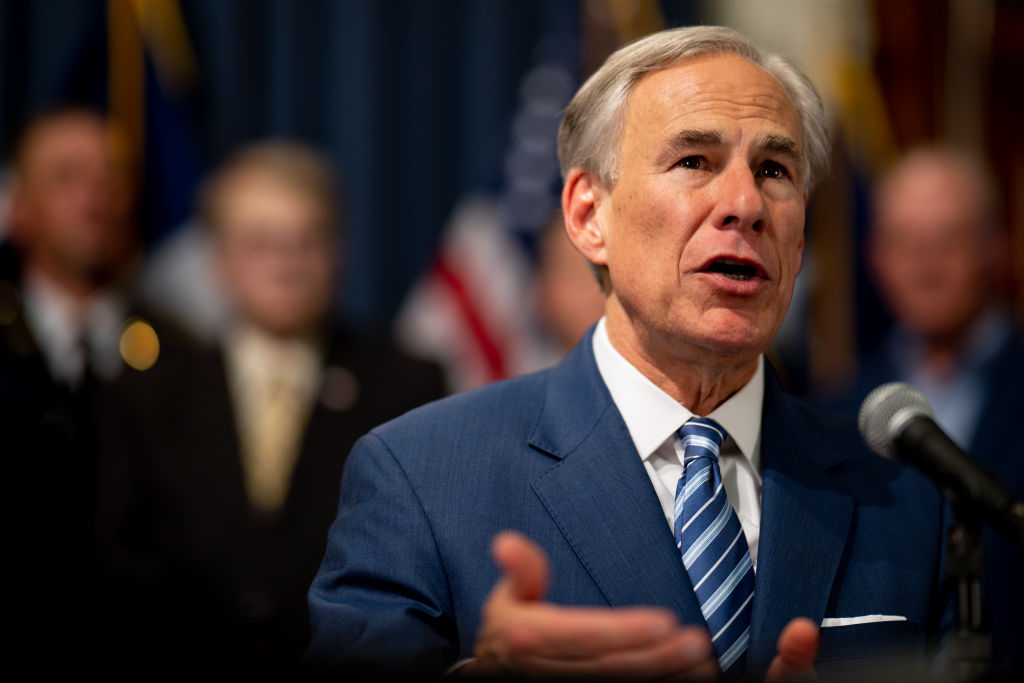
Texas Gov. Greg Abbott signed numerous bills this week, including some that restrict labor rights, ban transgender women from competing in sports, and bar universities and colleges from having their own diversity offices and training.
Much of the new legislation would ban state-funded entities from earning state funding if they fail to comply with the newest rules. The laws reflect similar bills passed in other Republican-led legislatures that have especially targeted queer rights and curriculums in schools. The signing of the laws marks the end of Texas’ state legislature for the next two years because lawmakers meet on a biennial system.
Here’s the rundown of the bills he signed.
Transgender Athlete Ban
On Thursday, Gov. Abbott signed a new law banning transgender women from competing in college sports, adding to the existing law that requires high school athletes to participate in sports teams that match the sex they were assigned at birth.
More from TIME
Senate Bill 15, which is also called the “Save Women’s Sports Act,” refers to transgender women as men and says that a student’s biological sex is the biological sex correctly stated on” the student’s birth certificate or any other document that “accurately states” their sex. A person who reports a possible violation of the law cannot be retaliated against.
“Women’s sports are being threatened. Some women are being forced to compete against biological men,” Gov. Abbott said while signing the bill on Thursday.
Individuals can also sue schools that allow transgender athletes to participate on teams that match their gender identity.
At least 22 states bar transgender athletes from competing in sports that affirm their gender identity, according to nonprofit think tank Movement Advancement Project. The U.S. House of Representatives passed similar legislation along party lines in April.
In April, The Biden administration presented a proposed rule that would stop colleges or schools from receiving federal funding if they “categorically ban” transgender students from sports teams.
Labor Regulation Limits
On Tuesday, Abbott signed a new law that helps reaffirm the state as the “exclusive regulator” of commerce and trade in the state. The law targets local jurisdictions that have tried to enact their own regulations that are different from the state’s.
The law specifically affects ordinances that establish minimum breaks at work, the Texas Tribune reports. In Dallas and Austin, ordinances requiring construction workers to take 10-minute breaks every four hours due to the heat will now be annulled.
“Construction is a deadly industry. Whatever the minimum protection is, it can save a life. We are talking about a human right,” Ana Gonzalez, deputy director of policy and politics at the Texas AFL-CIO told the Tribune. “We will see more deaths, especially in Texas’ high temperatures.”
Texas has the highest numbers of workers die from high temperatures. The law goes into effect on Sep. 1.
Diversity, Equity and Inclusion Ban
On Wednesday, the governor signed a bill that bans offices and programs that promote diversity, equity and inclusion (DEI) at public universities and colleges beginning in January 2024, or they will lose state funding.
Texas has become the latest Republican-led legislature to pass a law targeting DEI. In Florida, Gov. Ron DeSantis signed a law in May that prohibits funding for colleges and universities’s DEI initiatives. It also calls for the end of any majors or minors related to critical race theory or gender.
The decision comes amid a soon-to-be-released Supreme Court opinion that will target affirmative action.
“Texas is leading the nation and ensuring our campuses return to focusing on the strength of diversity and promoting a merit-based approach where individuals are judged on their qualifications, skills, and contributions,” said Republican state Senator Brandon Creighton, an author on the bill, in a statement.
More Must-Reads From TIME
- The 100 Most Influential People of 2024
- How Far Trump Would Go
- Scenes From Pro-Palestinian Encampments Across U.S. Universities
- Saving Seconds Is Better Than Hours
- Why Your Breakfast Should Start with a Vegetable
- 6 Compliments That Land Every Time
- Welcome to the Golden Age of Ryan Gosling
- Want Weekly Recs on What to Watch, Read, and More? Sign Up for Worth Your Time
Contact us at letters@time.com